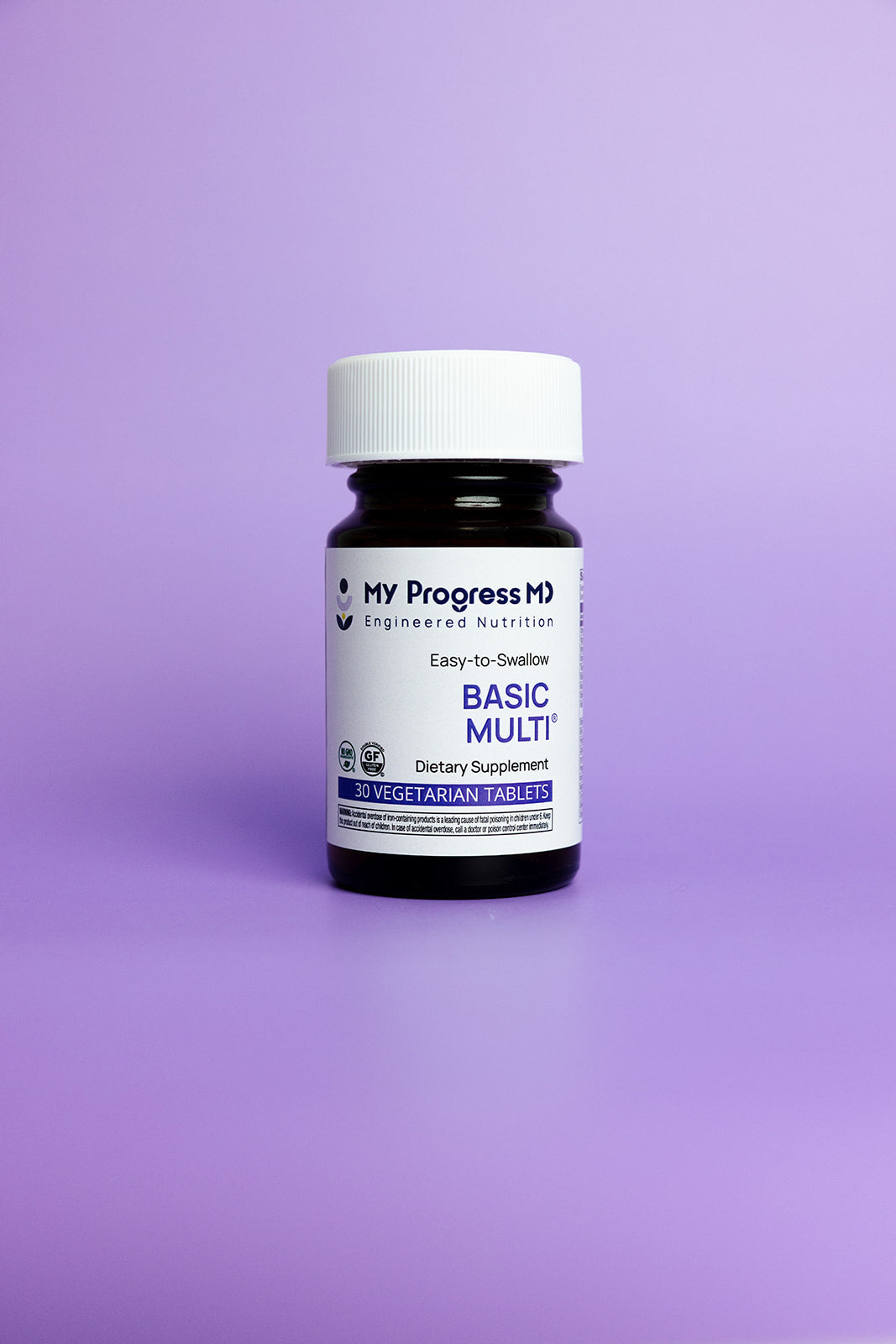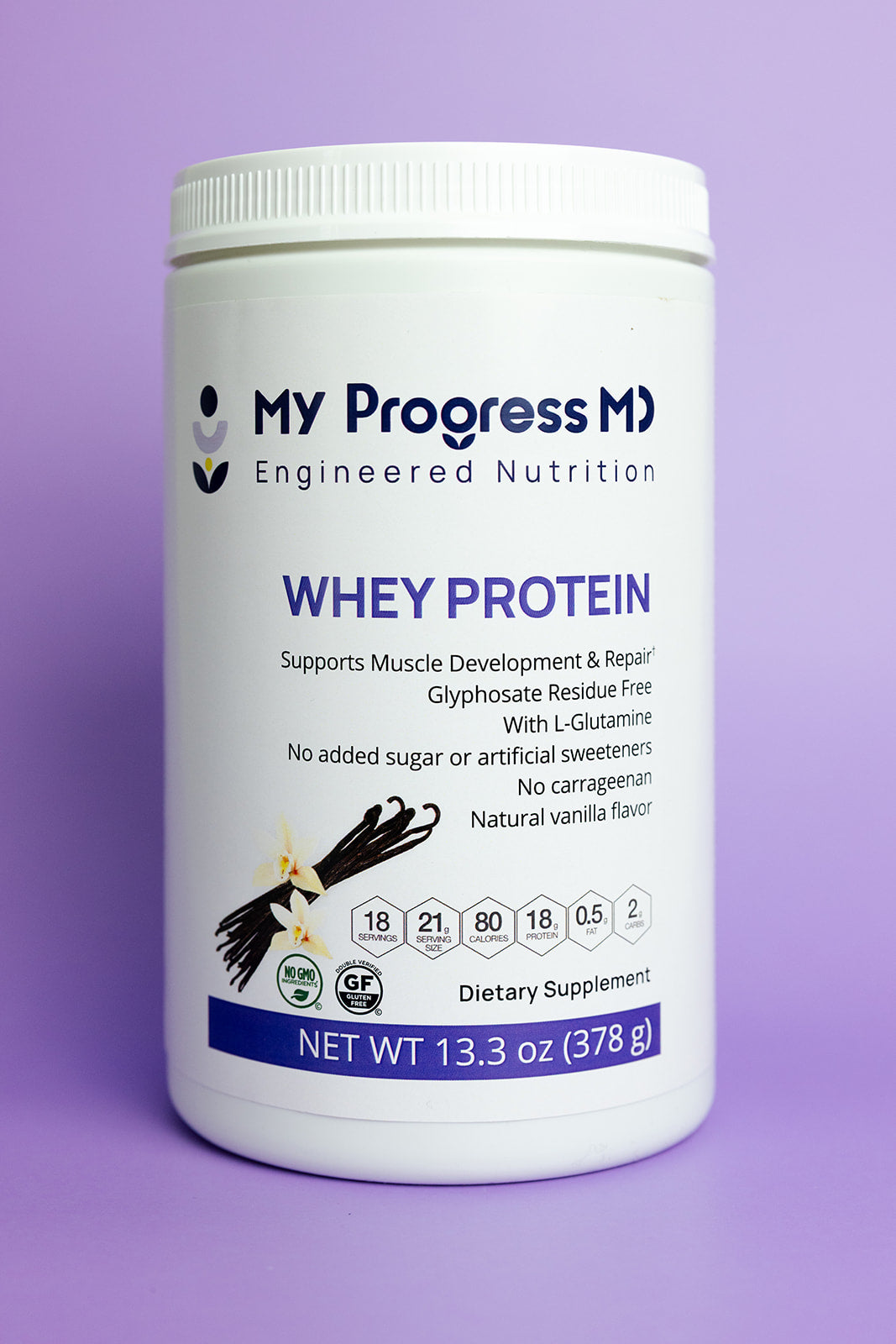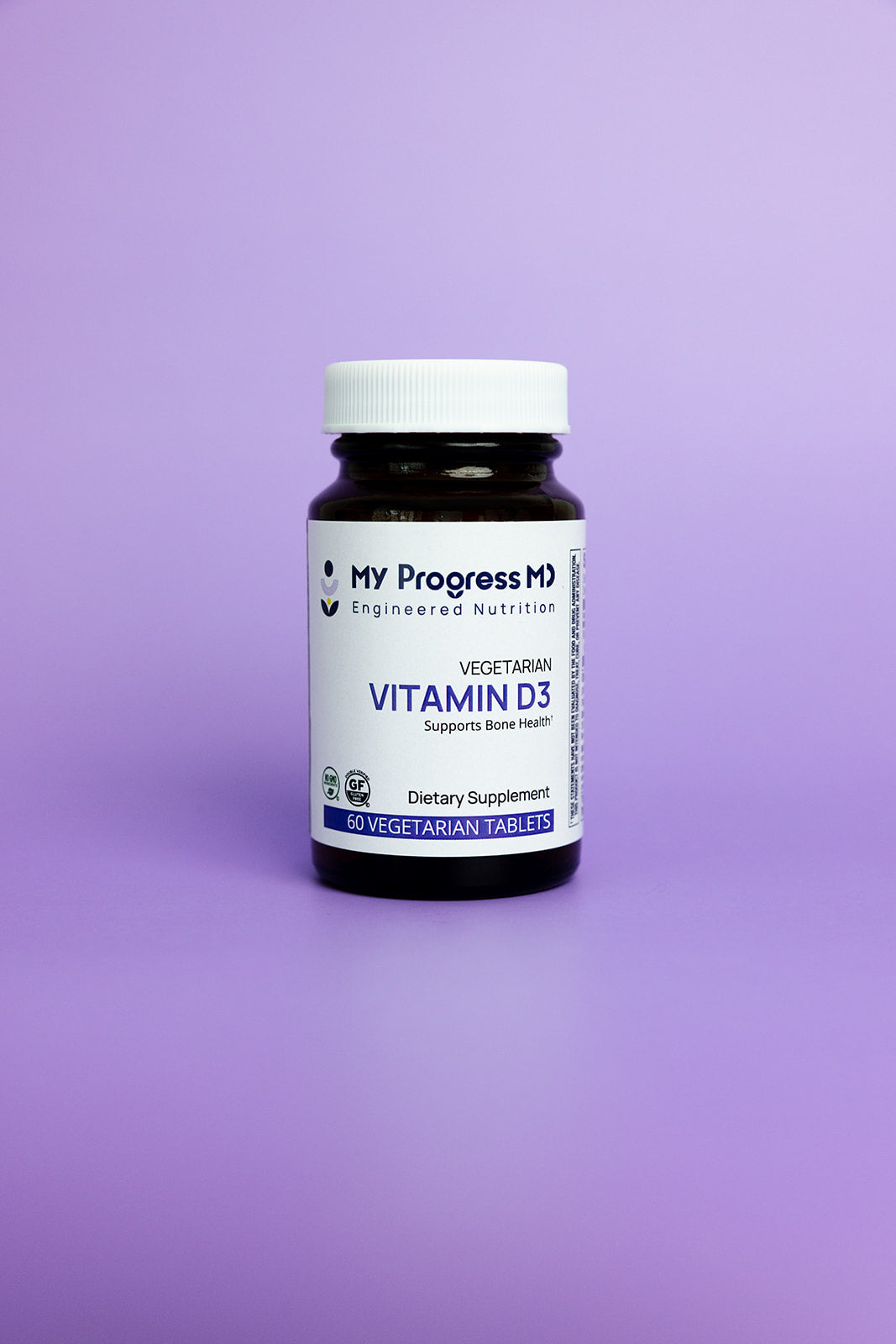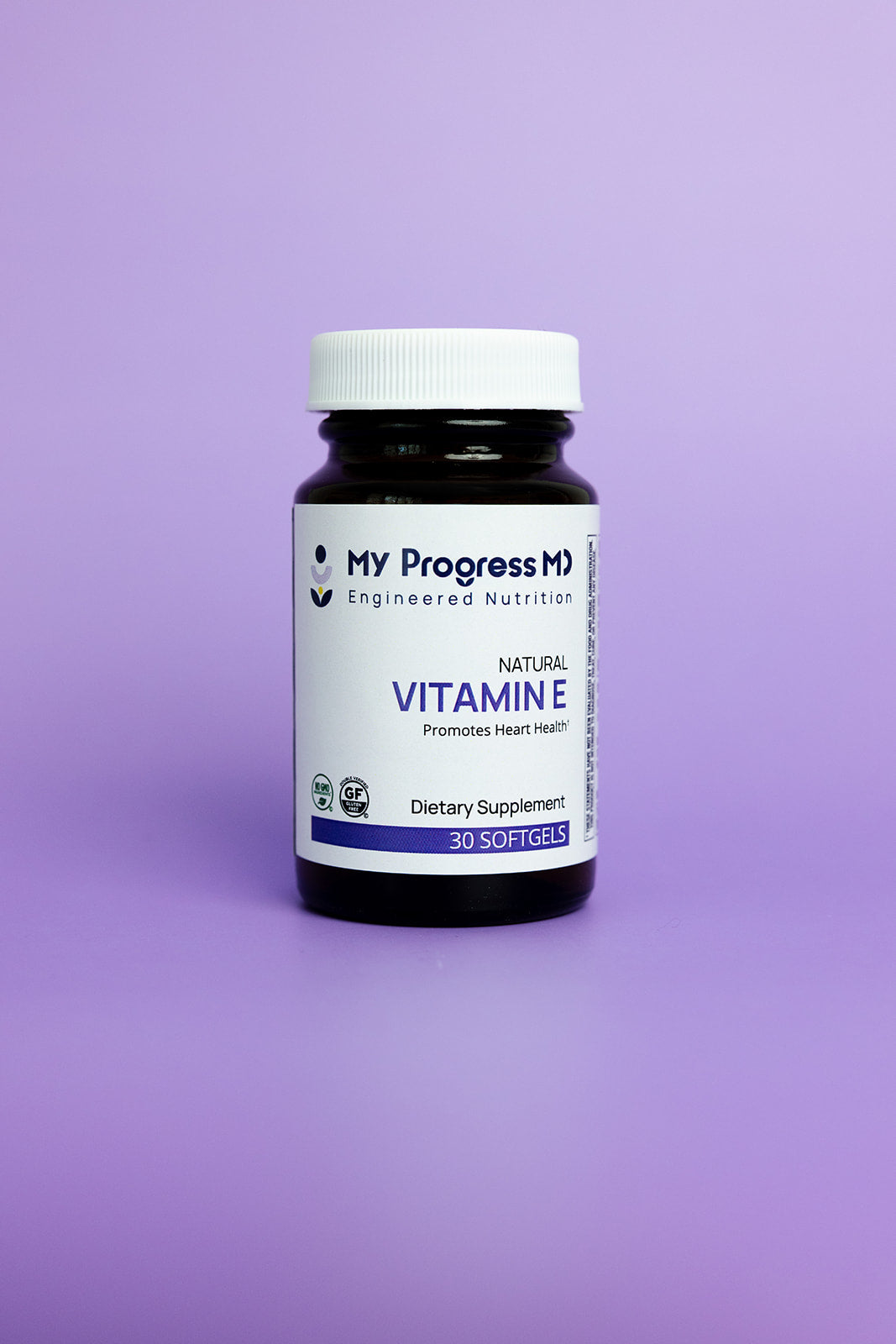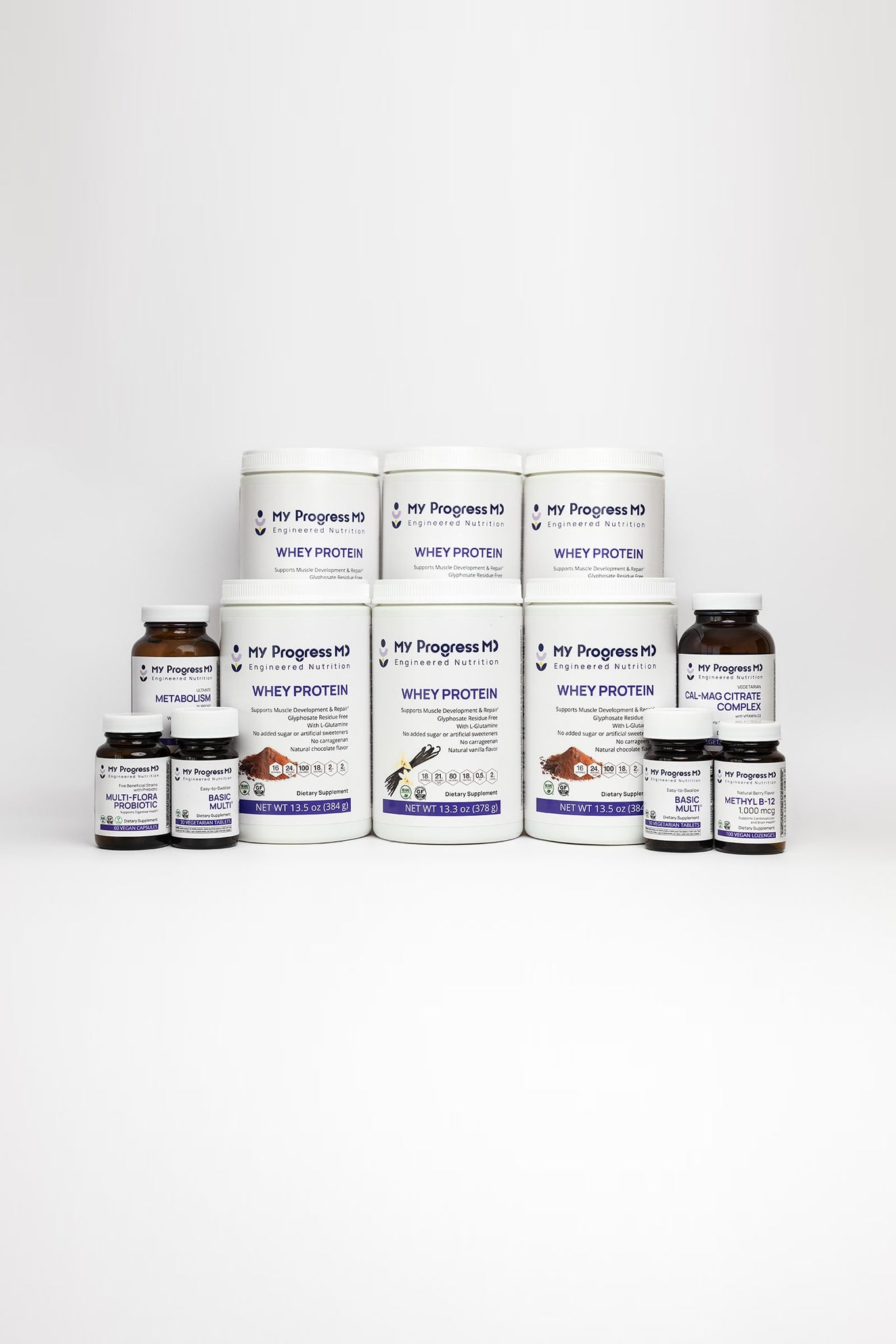Add These Supplements To Your First Aid Kit
Let’s talk about what the latest and greatest set of specific nutrition and supplement recommendations are as far as the best ways to mitigate the severity of a respiratory infection.

The essentials:
Vitamin D
There have been numerous investigations looking at the effect of vitamin D3 supplementation on the risk of experiencing respiratory tract infections.
The most recent, largest, and well-conducted meta-analysis pooled data from 25 randomized controlled trials with nearly 11,000 participants from 15 different countries on four continents. A group of 200 of the world’s leading experts on vitamin D3 came out with a position paper. There is ample and compelling evidence that a blood level of 30-50 ng/mL is necessary for optimal health. It also modulates thousands of genes and many aspects of immune function, both innate and adaptive. Many people will require 5,000 to 10,000 IU in the form of vitamin D3 to obtain this level.
Rates of vitamin D deficiency exceed 33% of the population in most of the world and most estimates of insufficiency are well over 50%. Everyone who’s not supplementing with vitamin D3 should start immediately while getting tested.
You should test your vitamin D status (the test is known as 25(OH)) and supplement accordingly.
From prevention through getting a severe respiratory infection case, you will definitely need vitamin D.
Zinc
Zinc is an essential mineral for many areas of general health. Besides assisting other minerals in supporting bone and nervous system health, zinc's benefits to the immune system are becoming more widely known due to its direct antiviral properties. Indirect evidence also suggests zinc may potentially reduce the risk, duration and severity of respiratory infections, particularly for populations at risk of zinc deficiency including people with chronic disease co-morbidities and older adults. One of the key ways that zinc works is that zinc prevents cold viruses from binding to our cells.
The best way to enrich the tissues of the mouth, nose, and throat with zinc is to use zinc lozenges instead of capsules or tablets. Use at a low dose preventatively and at a higher dose when encountering a potential exposure to a respiratory infection. If you are using our multivitamin with 15 mg of zinc just add one of our lozenges at the first sign of respiratory symptoms for a more intensive dose. While using high-doses of zinc, include 50 grams of cocoa powder, 60 grams of 90% dark chocolate, or 70 grams of 70% dark chocolate as this will help prevent copper anemia, a possible consequence from supplementing with high doses of zinc.
Take on an empty stomach and avoid taking it with whole grains, nuts, seeds, legumes, or coffee as doing so will impaired absorption.
It can be assumed that zinc administration is beneficial for most of the population, especially those with suboptimal zinc status.
Vitamin C
Vitamin C plays a huge role in recovery as it has antioxidant properties, which can reduce the negative effects that oxidative stress has on the body. It has been observed that when there is a viral infection, viruses can induce via multiple pathways severe oxidative stress. Vitamin C also shows anti-inflammatory properties, making it an ideal booster for patients to tackle the damage from a respiratory infection.
In the early literature, vitamin C deficiency was associated with pneumonia. After its identification, a number of studies investigated the effects of vitamin C on diverse infections. A total of 148 animal studies indicated that vitamin C may alleviate or prevent infections caused by bacteria, viruses, and protozoa. The most extensively studied human infection is the common cold. Vitamin C administration does not decrease the average incidence of colds in the general population, yet it halved the number of colds in physically active people. Regularly administered vitamin C has shortened the duration of colds, indicating a biological effect.
The best add-ons:Everybody should be taking a good high potency multiple vitamin and mineral formula. Vitamin and mineral deficiencies are far too common, especially in those who have chronic diseases or chronic inflammation.
Evidence to date suggests that probiotics have anti-inflammatory and immuno-modulatory properties with beneficial potential to prevent or alleviate respiratory infection symptoms.
The immune system is a network of cells, tissues, and organs that work together to protect and defend the body against foreign and harmful pathogens including viruses, bacteria, parasites, and fungi. A healthy immune system provides protection against internal and external stressors. Our nature-based formula contains herbs, vitamins, and an antioxidant blend, as well as a bioflavonoid complex to naturally support immune health.
Conclusion
It’s not just one nutrient that’s going to save yourself against infection.
The nutrients that our body needs are required by all cells throughout the body, especially those that are replicating rapidly, like white blood cells during an infection. For the prevention and management of viral and bacterial infections, balanced nutrition is essential in maintaining immunity.
Ultimately, any nutrient deficiency will compromise the immune system. Nutrients are the essential building blocks to fight any infection. The nutrients we get from quality food and supplements affect every body function, including the severity (or lack of) of infection and how fast we recover from it.
Bibliography
Martineau A R, Jolliffe D A, Hooper R L, Greenberg L, Aloia J F, Bergman P et al. Vitamin D supplementation to prevent acute respiratory tract infections: systematic review and meta-analysis of individual participant data BMJ 2017; 356 :i6583 doi:10.1136/bmj.i6583Grant, W. B., & Holick, M. F. (2005). Benefits and requirements of vitamin D for optimal health: a review. Alternative medicine review : a journal of clinical therapeutic, 10(2), 94–111.
VitaminDforAll. (2021, February). Over 200 Scientists and Doctors Call For Vitamin D To Combat COVID19. vitaminDforAll.Org. https://vitamindforall.org/letter.html
Hemilä H. Zinc lozenges and the common cold: a meta-analysis comparing zinc acetate and zinc gluconate, and the role of zinc dosage. JRSM Open. 2017 May 2;8(5):2054270417694291. doi: 10.1177/2054270417694291. PMID: 28515951; PMCID: PMC5418896.
Wessels, I., Rolles, B., & Rink, L. (2020). The Potential Impact of Zinc Supplementation on COVID-19 Pathogenesis. Frontiers in Immunology, 11. https://doi.org/10.3389/fimmu.2020.01712
Novick, S. G., Godfrey, J. C., Godfrey, N. J. & Wilder, H. R. How does zinc modify the common cold? Clinical observations and implications regarding mechanisms of action. Med. Hypotheses 46, 295–302 (1996).
Carr, A. C., & Maggini, S. (2017). Vitamin C and immune function. Nutrients, 9(11), 1211.
Hemilä H. (2017). Vitamin C and Infections. Nutrients, 9(4), 339. https://doi.org/10.3390/nu9040339
Chernyak, B.V.; Popova, E.N.; Prikhodko, A.S.; Grebenchikov, O.A.; Zinovkina, L.A.; Zinovkin, R.A. COVID-19 and oxidative stress. Biochemistry 2020, 85, 1543–1553.
Jovic, T. H., Ali, S. R., Ibrahim, N., Jessop, Z. M., Tarassoli, S. P., Dobbs, T. D., Holford, P., Thornton, C. A., & Whitaker, I. S. (2020). Could Vitamins Help in the Fight Against COVID-19?. Nutrients, 12(9), 2550. https://doi.org/10.3390/nu12092550
Corrao S, Mallaci Bocchio R, Lo Monaco M, Natoli G, Cavezzi A, Troiani E, Argano C. Does Evidence Exist to Blunt Inflammatory Response by Nutraceutical Supplementation during COVID-19 Pandemic? An Overview of Systematic Reviews of Vitamin D, Vitamin C, Melatonin, and Zinc. Nutrients. 2021 Apr 12;13(4):1261. doi: 10.3390/nu13041261. PMID: 33921297; PMCID: PMC8069903.


